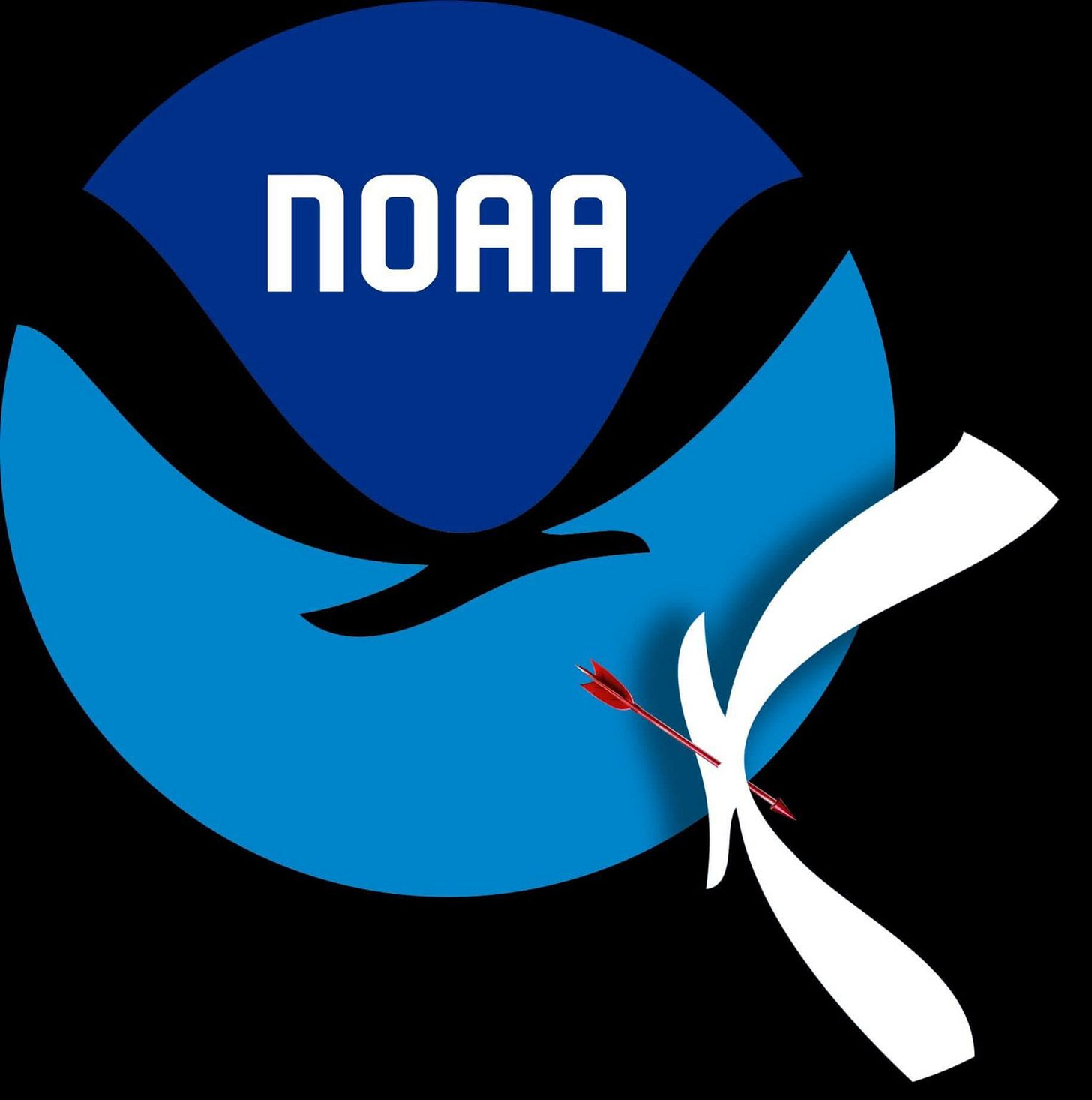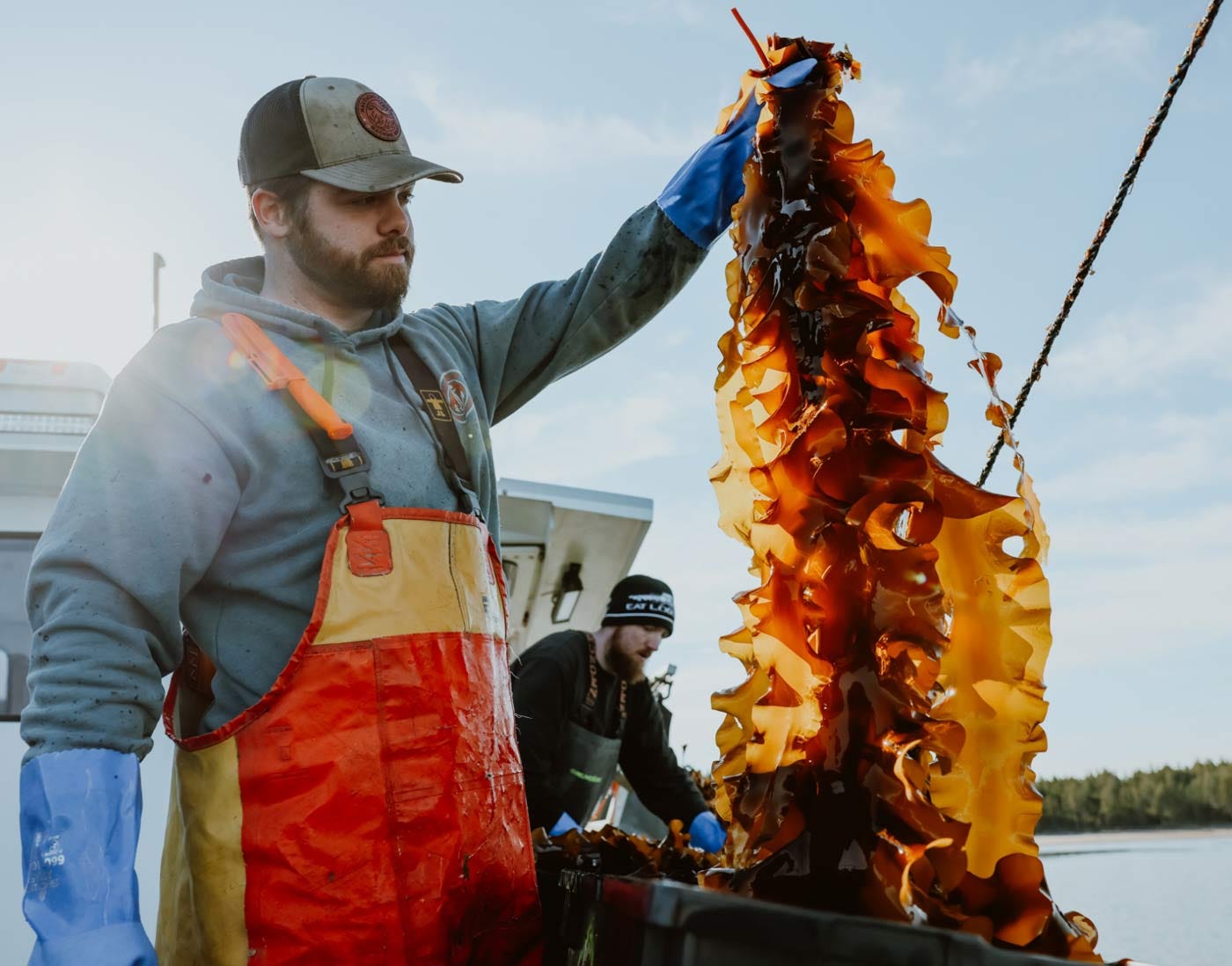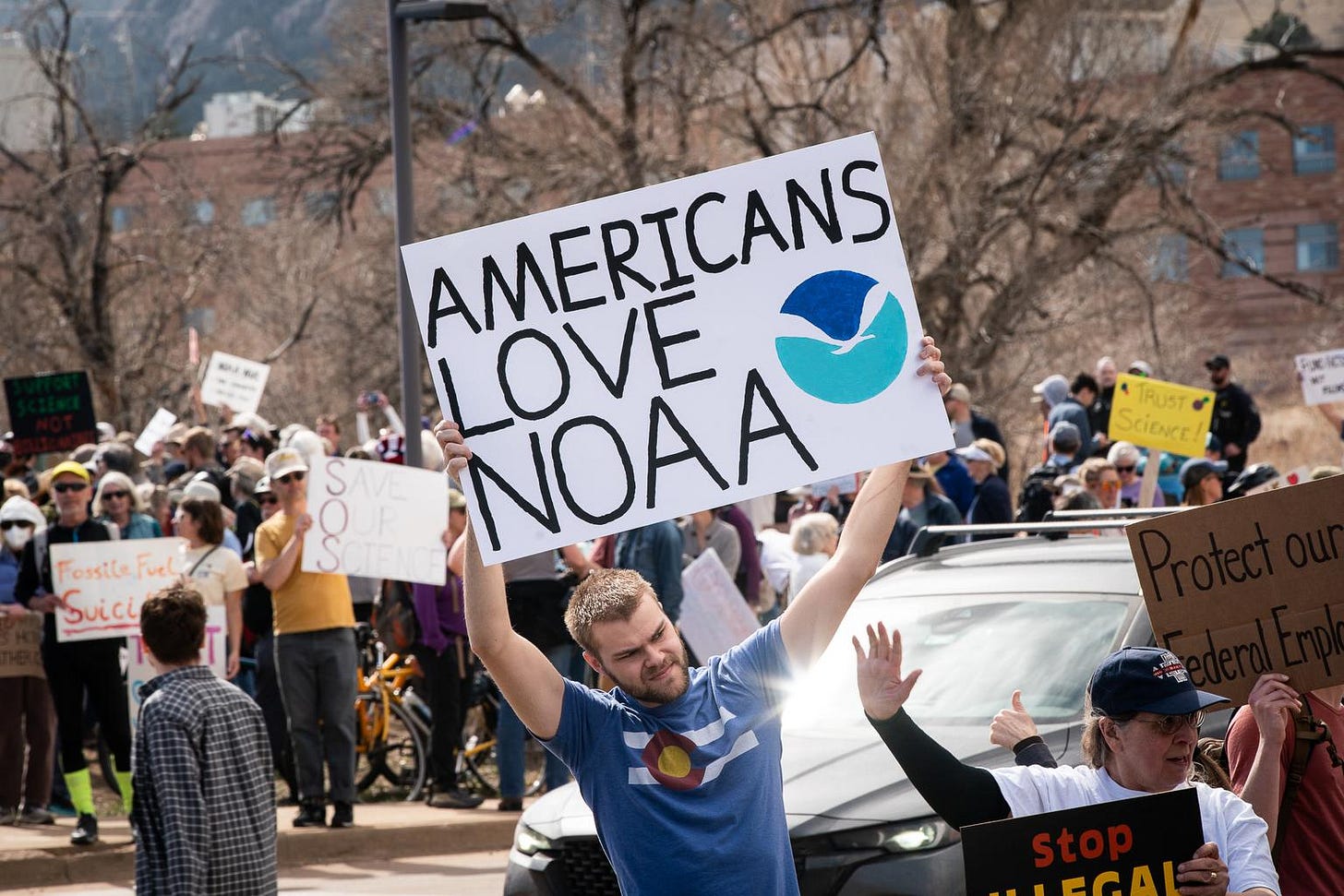Waves of Uncertainty: How NOAA's Layoffs Threaten New England’s Ocean Economy
The National Oceanic and Atmospheric Administration lost more than 880 employees last Thursday February 27, 2025

The ocean has always been the lifeblood of New England. From generations of fishermen to emerging seaweed farmers, our coastal communities have survived by adapting to the sea’s changing rhythms. But now, we're facing a crisis not from nature, but from political upheaval that could devastate the future of our oceans.
The sudden layoffs at NOAA last week—880 scientists, researchers, and climate experts—are not just numbers on a budget sheet making our government magically “more efficient.” They are people who have dedicated their careers to track hurricanes threatening communities, protect fisheries that feed millions, and advance the very science that drives coastal resilience, renewable energy, and marine conservation efforts. Their work has been powering our region’s ocean industries for decades, and now, that lifeboat is swaying in choppy waters.
“I think this really has a huge potential to do damage to our ability to produce seafood for our nation,” Robert Rheault, executive director of the East Coast Shellfish Growers Association, told the Providence Journal.
“It will be much harder for Rhode Islanders who work in the fishing industry… without the support that NOAA has to offer,” Congressman Seth Magaziner (D-R.I.) said. “People’s livelihoods are at risk.”
Seaweed Farming: A Promising Industry Left Adrift

From Maine to Alaska, NOAA has been quietly supporting the Seaweed Revolution through sustainable aquaculture research helping coastal communities build climate-friendly businesses. Their studies guide everything from best farming practices to ocean health monitoring.
With these agency disruptions and loss of hardworking civil servants, this essential knowledge sharing is in jeopardy. New England’s seaweed farmers, already navigating regulatory uncertainty, now face an even greater challenge—losing the scientific foundation that has helped them grow.
As anyone who follows this newsletter knows, seaweed farming has been gaining momentum as a climate-friendly industry, offering nature-based solutions in sustainable food, biofuels, and even plastic alternatives. Without NOAA’s guidance, the $500 million seaweed industry could stall before it even reaches its full potential.
What Does NOAA Actually Do—And Why Does It Matter?
I’ve been surprised in my work just how many people don’t know what NOAA is. NOAA, the National Oceanic & Atmospheric Administration, is the backbone of weather forecasting, ocean science, and fisheries management in the U.S. NOAA’s layoffs don’t just impact scientists—they have real economic consequences for our coastal industries. Here’s what’s at stake:
Hurricane Tracking & Extreme Weather Warnings
Every year, NOAA’s National Hurricane Center monitors and predicts over a dozen named storms that threaten U.S. coastal communities. Their models give people crucial time to evacuate, preventing billions of dollars in damage and saving lives. With hurricane seasons getting stronger due to climate change, cutting scientists and research funding at this moment is like turning off a lighthouse during a storm (Forgive me, reader—even in rough seas, I can’t resist an ocean pun.)Keeping Fisheries—and Fisherfolk—Afloat
If you eat seafood, thank NOAA. This agency is responsible for monitoring fish stocks and setting sustainable catch limits so fisheries don’t collapse. In 2023 alone, NOAA’s data helped maintain our $320 billion fishing industry that supports 2.3 million jobs. Now with staff slashed, fisherfolk are left guessing about fish populations, increasing the risk of overfishing—or worse, entire fisheries shutting down due to poor management.Long-Term Climate & Weather Predictions
Shellfish farmers, transportation companies, emergency response teams—they all rely on NOAA’s data to plan months or years ahead. Without it, everything from crop planning to disaster response becomes less predictable and more expensive. Cutting NOAA’s research means less accurate long-term forecasts, which could cost industries billions in preventable losses.

A Personal Reflection
These layoffs aren’t just bureaucratic shuffling. They represent the potential erosion of scientific progress at a moment when we need it most. Every employee lost is a perspective diminished, a potential breakthrough delayed.
I’m reading stories and hearing firsthand accounts of how Trump and Musk’s unprecedented decisions are directly affecting people who have worked every day to make the world a better place—for life both above and below the surface. Civil servants do not join organizations like NOAA for the paycheck. They do it because they deeply believe in advancing science, supporting public safety, and providing healthy food for the American people. They don’t deserve to lose their livelihoods because of the whims of a few reckless billionaires who are entirely detached from reality.
New England’s ocean economy depends on knowledge, foresight, and sustainability. Without NOAA, we are flying blind into an era of rising seas and intensifying storms. If we don’t stand up now, we risk losing more than jobs—we risk losing the very science that protects and sustains our communities.
To my fellow ocean advocates, environmentalists, and science supporters, please remember: our voice matters.
Stay informed. Stay engaged. And most importantly, stay hopeful.
What We Can Do
Call or email your representatives – Demand full funding for NOAA and other essential agencies. You can use the Union of Concerned Scientists (UCS) action prompt to send a message directly to lawmakers.
Engage with the 50501 Movement – 50 protests, 50 states, 1 movement. Join local protests and help amplify the voices of federal workers fighting back. Subscribe to their mailing list to stay informed.
If you’ve been directly impacted – Civil Service Strong offers legal guidance, appeal resources, and support for unlawfully terminated federal employees.
Spread the word – Share this issue with your networks. The more people who understand the stakes, the more pressure we can put on those in power to reverse these devastating and dangerous decisions.






Thank you Beck for this informative yet discouraging article!
Thank you, Beck, for using your platform to highlight the immense loss we are experiencing because of this far reaching purge of talented, civil servants. We are worse off as a country without talented public servants contributing to quality science inside government.